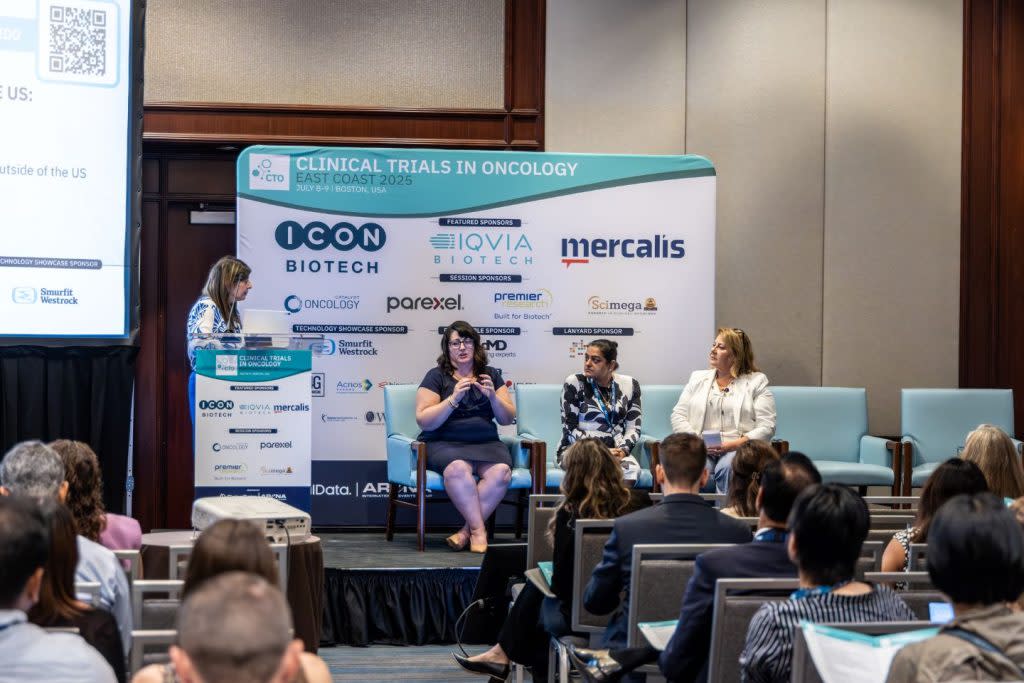Protocol flexibility and navigating the US geopolitical landscape in oncology clinical trials

Industry experts have provided insight into how oncology clinical trials can be designed for success from the outset and rendered as patient-centric as possible.
At the Clinical Trials in Oncology (CTO) East Coast conference, which took place between 8 and 9 July in Boston, US, key themes under consideration included strategies to account for the shifting geopolitical landscape in the US and beyond, budgeting effectively for an oncology clinical trial, trial design best practices, and augmenting trials with technology to shorten timelines and reduce costs.
Accounting for the current geopolitical landscape
With economic challenges, such as the Trump administration’s imposition of tariffs, biotechs are facing mounting capital challenges that influence clinical trial activity. During a panel on the evolving oncology trials landscape in the US, speakers reflected on how to navigate this shifting landscape effectively.
AstraZeneca's executive director of oncology regulatory strategy Shaily Arora advised keeping the global development strategy in mind, noting that it may be helpful to work with CROs that have specialisation in European regulation, given that regulation such as the EU’s clinical trials regulation (CTR) is quite different in comparison to US regulatory requirements.
Beth Chamblin, senior director, project management, late phase oncology at IQVIA Biotech, highlighted that trust, flexibility, and early integration have become foundational, and that policy advocacy is becoming increasingly more important with respect to navigating changes.
The panellists also agreed that regional diversification was of rising importance in planning, for example, flexible trial designs, so that if something does change [in the US], there is a backup option to continue a clinical trial, pivoting if required.
The importance of flexible trial protocol design
During an interview with Clinical Trials Arena, NextPoint Therapeutics' chief medical officer Leena Gandhi stressed how flexible trial designs can shorten study timelines and decrease costs.
A key aspect Gandhi homed in on was being aware when moving “operationally slowly” through dose escalation in Phase I, positing this as one area that can stymy a trial’s movement into Phase III.
“It's challenging from both a patient and clinician point of view to put patients on sub-therapeutic doses,” Gandhi says. “There’s a tendency to say, let's wait and see, especially if there's a large dose range, to get into those higher doses.”
“The more a trial’s design focuses on using biology to minimise the dose levels that are chosen, the faster we can at least move through the dose evaluation, which represents one of the biggest challenges of spending too much time in Phase I.”
Story continuesHowever, Gandhi added that learning as much as possible during Phase I can serve to expedite oncology clinical trials, potentially making it possible to ‘skip’ a Phase II trial and progress to Phase III sooner.
She commented: “The more solidly we can understand both the right dose as well as the right patient selection strategy before Phase III, the bigger the impact will be, the bigger the difference in outcomes between the control arm in a randomised setting, and the faster you'll get through that Phase III trial, because you'll have a body of robust data before getting there.”
While advocating for the creation of adaptable trial designs that allow for flexibility during trials for increased efficiency, Gandhi pointed out that being too flexible can also be a pitfall.
Gandhi explains: “You can spend a lot of time writing vague language in a protocol and then have it not be approved by the regulatory authorities because it's too vague. And at some level, you can't predict everything you're going to learn in a Phase I trial, either. You can't anticipate all the different things that you might need to do. You have to be able to respond to the data.
“One thing I hope we're moving towards, from a regulatory environment perspective, is getting faster and better at amending trials if we need to, so we don't lose time, because it's hard to know everything that you might run into ahead of time.”
Patient-centricity is key
Speakers also focused on how clinical trials can be made more amenable for patients. The prevailing theme was that patient centricity is key, and that success in oncology trials, given the gravitas of patients living with cancer, foremostly needs to meet patients where they are.
To ensure patient retention in trials and mitigate drop-out rates, various speakers advised that trials should be designed with geographic location and patient convenience as the utmost considerations.
Meanwhile, in certain cases and to the extent possible, attendees were advised to augment their oncology clinical trials with technology such as AI and remote patient monitoring tools to hasten and simplify measurement protocols where possible.
Finally, with trial design, attendees were advised to plan to ensure there are no surprises later in the study to maximise the success of a trial with as high a participation rate as possible.
Other sessions, including one led by Kelly Schlemm, vice-president and head of corporate affairs at Servier Pharmaceuticals, outlined the best approaches towards raising community awareness of oncology trials to boost participation. Schlemm’s advice included leaning on patient advocacy groups to raise clinical trial awareness – a matter of particular importance for isolated or remote rural communities where there has historically been a scarcity of clinical trials.
AstraZeneca’s Shaily Arora reflected on the US Food and Drug Administration’s (FDA) priority review programmes, such as the breakthrough therapy and fast track designation programmes, and how they can streamline developmental timelines, leading to faster drug approvals and thereby meeting patient needs earlier.
In an interview with Clinical Trials Arena, Arora notes that there is a “threshold of information” required for companies to show that they are offering something better than what is currently available when seeking approval for such programmes.
Arora advises: “Having a long-term plan, so engaging with the healthcare authorities early on to devise the strategy for your early phase clinical trials, utilising and optimising early phase trials to leverage the data that you need to help successful late phase trials, will be very beneficial.
“These designations can give you the opportunity to have that open dialogue and frequent communication with the health authority. That could be one way to streamline the development and design studies that are fit for purpose.”
Hopes around AI
Another key theme of the conference was the potential of AI to expedite trials, gain fresh insights, or hasten development timelines.
During a panel session featuring speakers including Rebecca Jacob, project lead of clinical and global study management at Sanofi, panel members expressed their hopes that AI would over time play an increased role in managing data and quality, selecting the most suitable patients for trials, and reaching patients in remote rural areas by analysing their electronic healthcare records (EHR) to gauge trial participation suitability.
However, panellists agreed that when thinking about AI, companies should evaluate what's most challenging for them and what may adequately be remedied with AI, rather than ‘going with the trend’ and implementing AI without due consideration.
The speakers concurred that AI deployment should be centred around building efficiencies to allow everyone in an organisation to perform their jobs better or faster, rather than thinking about AI as a means of replacing the human workforce.
"Protocol flexibility and navigating the US geopolitical landscape in oncology clinical trials" was originally created and published by Clinical Trials Arena, a GlobalData owned brand.
The information on this site has been included in good faith for general informational purposes only. It is not intended to amount to advice on which you should rely, and we give no representation, warranty or guarantee, whether express or implied as to its accuracy or completeness. You must obtain professional or specialist advice before taking, or refraining from, any action on the basis of the content on our site.














